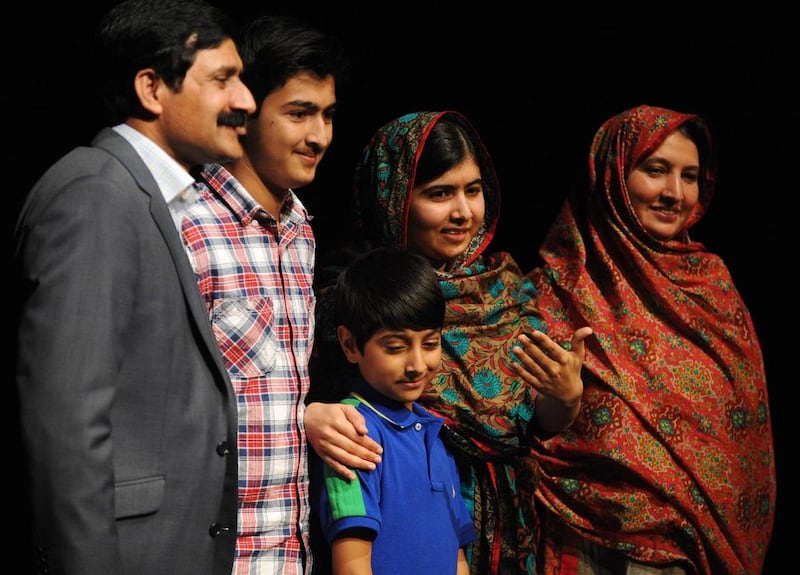When the Nobel Peace Prize is officially presented in Oslo on Wednesday, 17-year-old Malala Yousafzai will become the youngest recipient of the prestigious award. Behind her tireless efforts for gender equality and education is the esteemed example of her parents who have sustained her along the way.
Malala explained in a Forbes interview what it was like growing up in the Yousafzai home in their native Pakistan, “We all were in a very small house, not rich economically, but rich in our values, in our ethics.”
Malala’s father, Ziauddin, is a prime example of rich ethics. A schoolteacher by trade, he started his own school in 1994 where he taught 1,100 students, including hundreds of girls. Pakistan hasn’t improved in the 20 years since in terms of gender equality; this year’s Global Gender Gap Report ranks the country as the second-worst for gender equality. Ziauddin’s efforts to educate both genders gave Malala the idea to start the Malala Fund, which offers scholarships to girls suffering from unlawful child labor.
Given the background of relationship and gender statuses in Pakistan, it’s remarkable to learn more about the Yousafzai parents who defy culture if it means supporting one another in worthwhile causes.
Ziauddin recently spoke in a TED talk about how Middle Eastern culture generally prohibits women’s rights. “Fathers are usually known by their sons. But I’m one of the few fathers who is known by his daughter, and I’m proud of it,” said Ziauddin. In the same talk he references women’s plight throughout patriarchal history: “The study of a woman is the study of injustice, inequality, violence and exploitation.”
He explained how Middle Eastern history sees an ideal daughter as one who is quiet and submissive. Contrary to this belief, Ziauddin calls for reform, for families to move forward in doing what they know is right.
In a sense of creating gender equality within the Yousafzai family, Malala acknowledged that her mother, Torpekai, doesn’t get a lot of recognition for her supporting role. Speaking about the Malala Fund in the Forbes interview, Malala said, “My mother always encourages us to continue in this campaign. She believes that what we are doing is the truth and we should never be afraid of telling the truth.”
Torpekai recently proved her support of her daughter’s humanitarian efforts by disregarding decades of deprived educational opportunities when she learned to read, an achievement that only 47 percent of Pakistani women on average realize.
Although her comments in an NBC News story were addressed to her father, Malala’s words reflect her inspiring feelings and respect for both her parents: “I’m thankful to my father for not clipping my wings, for letting me … fly and achieve my goals. For showing … the world that a girl is not supposed to be the slave. A girl has the power to go forward in her life.”
The ongoing story of the Yousafzais is one of a family fighting for peace and equality around the world. It’s one that we should all learn to emulate.




